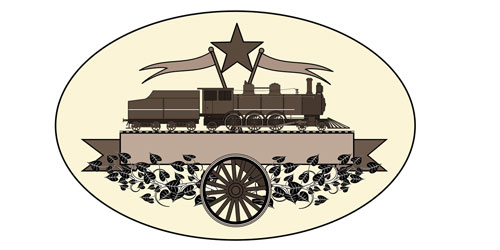《论语诠解英文版》——Chapter VIII"泰伯" (Taibo)
[8- 1] 子曰: “ 泰伯, 其可谓至德也已矣。三以天下让, 民无得而称焉。"
8.1 The Master said, "Taibo has indeed attained the supreme level of true virtue. Several times he declined the crown. The people do not know how to praise him enough."
[Comment] "泰伯ta i b6" was also known as "太伯 ta i b6." He was the eldest son of the founding father of the Zhou Dynasty, Grand Duke Ji Dan, who had three sons: Taibo, Zhongyong, and Jili. " 三 s on" in " 三以天下让son yT tian xia rang" does not mean " 三 son" literarily. Rather, in its meta phorical sense, it means "many."
[Reading] The reason why Confucius confers Taibo with supreme virtue is probably the rarity of Taibo's deed. Relinquishing the ruling position of a kingdom, not once, but many times, indicates virtue that is multifaceted and includes self-knowledge, resistance to lust, modesty, and compassion for others, to name just a few.
[8- 2] 子曰: "恭而无礼则劳;慎而无礼则蔥,勇而无礼则乱,直而无礼则绞。君子笃千亲,则民兴千仁。故旧不遗,则民不偷。"
8.2 The Master said, "Courtesy without the rites of propriety becomes an noyance. Caution without the rites of propriety becomes bashfulness. Audac ity without the rites of propriety becomes foolhardiness. Straightforwardness without the rites of propriety becomes bluntness. If the ruler is benevolent to his relatives, the people will pursue true virtue. If he does not neglect his old friends, the people will value friendship."
[Com ment] " 劳 16 0 " translates as "tired, worn out." In the context of this passage, it describes those who are in power. "蔥 xT" suggests the adjectives "timid, intimidated." "故旧 g u jiu" implies "old friends" and " 偷 to u" im plies "shallowness."
[Reading] This section is centrally significant in discerning Confucius' thoughts on the Middle Way. To Confucius, this is the nebulous point offluidity in human relations—i t denies representation, that which allows the practitioner to achieve optimal benefits for himself as well as for others. Thus, the quality of this action is named virtue. Each virtue in this section ceases to be a virtue when the practitioner performs it in excess. But this "excess" also bears connection to its context. There is an intrinsic paradox or contradiction embodied in each of the above virtues. Without the rites of propriety, true virtue cannot exist. The idea of propriety is "rightness," but rightness in a specific context.
[8- 3] 曾子有疾, 召门弟子曰: “启予足!启予手! 《诗》云: `战战兢兢,如临深渊,如履薄冰。'而今而后,吾知免夫!小子!”
8.3 Zeng Zi was gravely ill. He summoned his disciples, saying, "Put my feet and my hands in their right position! The Classic of Odes says,'One should be apprehensive as if on the brink of a deep chasm, as if traversing on the thin ice.'From now on, I know I will be free from any punishment. Oh, my disciples!"
[Comment] "启 qT" means "to move, to lift up and move," while " 免夫 mian fu" connotes "free from punishment."
[Reading] Zeng Zi is renowned for his virtuous deeds of filial piety. He is also a man who exhibited caution in life. He was convinced that the best way to pay back our parents'love is to take good care of our body. Since he was seriously ill and approaching the end of his life, he thought that he had successfully practiced the virtue of filial piety through his emphasis on guarding his physical body from any injury.
[8- 4] 曾子有疾, 孟敬子问之。曾子言曰: “鸟之将死,其鸣也哀; 人之将死,其言也善。君子所贵乎道者三:动 容貌,斯远暴慢矣;正 颜色, 斯近信矣;出辞气,斯远鄙倍矣。笾豆之事,则有司存。"
8.4 Zeng Zi was gravely ill. Meng Jingzi went to see him. Zeng Zi said, "When a bird is dying, its song is mournful. When a man is dying, his words are kind. Those who are of high rank should attend to three principles of conduct: pay attention to his demeanor and appearance, thus staying away from audacity and insolence; display a countenance of sincerity, thus appear ing trustworthy and faithful; speak in a decent voice and uses proper words, thus keeping from vulgarity and discourtesy. As for details of the sacrificial ceremonies, leave them for proper officers to attend to."
[Com ment] " 孟 敬 子 m 的 g j1ng zT" was a ministerial-level official in the State of Lu and was the son of 孟 武 伯 m 的 g wu b6. In this context, " 君 子 jun zT" refers to a ruler. " 贵 g ul" means "valuable" and " 道 dao" im- plies "the Way of a man of true virtue, the way a ruler governs." " 暴 慢 boo man" indicates "rudeness, negligence," while "正颜色 zh的 g y6n se" con notes "serious countenance." "近信 jln xln" means "close to integrity,"" 辞cf" means "discourse," and "气 ql" connotes " tone." '鄙 倍 bT b 创 i mplies "vulgarity."
[Reading] On his deathbed, Zeng Zi was still eager to preach to people how to be a good leader. His moral teachings emphasized inward self-cultivation, which would be naturally reflected in outward demeanor. A good leader should be more mindful of his professional and moral training than he is with familiarity of ceremonial procedure.
[8- 5] 曾子曰: “以能问千不能;以多问千寡,有若无,实若虚,犯而不校一昔者吾友尝从事千斯矣。"
8.5 Zeng Zi said, "A man gifted with ability learning from a man without ability; a man of profound knowledge learning from a man without knowl edge; a man of substance appearing to have none; a man, though slighted by others, not seeking altercation, an old friend of mine (Yan Hui) is such a man!"
[Reading] This section registers Zeng Zi's praise of Yan Hui, his fellow student. Both Zeng Zi and Yan Hui were Confucius'favored disciples. They both were a personal embodiment of Confucian thought: humble, modest, curious about knowledge, and dedicated to learning. Indeed, they were men of profound knowledge and were "gifted with ability," who nonetheless were anxious to learn "from a man without ability" and "from a man without knowledge."
[8- 6] 曾子曰: “可以托六尺之孤,可以寄百里之命,临大节而不可夺也,君子人与?君子人也。"
8.6 Zeng Zi said, "A man who can be entrusted with the care of a young orphan crown prince; who can be entrusted with the charge of a state; who keeps his integrity intact at the moments of crisis for the survival of his country: Isn't he a man of true virtue? He is indeed a man of true virtue."
[Comment] "六尺liu chT" implies "a young child under the age of fifteen." “托孤 tuo gO" translates as the phrase "entrust a young crown prince to the care of seasoned and experienced ministers and other high-ranking officials in the court." "百里 ba i IT" refers to the average size of the fief of a small feudal state. "节 ji令 means "节操 jie coo" (integrity), while "大节 do jie" implies "moments of crises for the survival of a state during which one's integrity was tested." "夺 d u6 " means "to give up, to loose."
[Reading] Zeng Zi offered his definition of 士 Shi: he who preserves his integrity in times of crisis and he who is worthy of one's trust for an impos sible mission.
[8- 7] 曾子曰: “士不可以不弘毅,任重而道远。仁以为己任,不亦重乎?死而后已,不亦远乎?”
8.7 Zeng Zi said, "To be worthy of the honor of 士 Shi, one should be broad minded and unflinching, since his responsibilities are challenging and his course is long. Is it not a demanding task to take as one's responsibility to realize true virtue, which only death can stop? Is it not a long course?"
[Comment] There has been much controversy over the interpretation of " 弘h6ng." One view holds that it means "大 do" (big, large). Another interprets its meaning "宽广 kua n guang" (broad-minded). Still another insists that it was misused for "强 qi6 ng" (strong). In the context of the above passage, we use its first interpretation, that is, "刚毅 ga ng yl" to mean "determined, firm."
[Reading] This passage from Zeng Zi, which delineates the glorious mis sion for 士 Shi, has casted far-reaching influence on Chinese scholars and officials for thousands of years and has become a motto for any youth with aspiration and ideals over the past two and a half millennia.
[8- 8] 子曰: “兴千诗,立千礼,成千乐。"
8.8 The Master said, "Poetry enlivens one's mind. Propriety enriches one's character. Music perfects one's disposition."
[Reading] Anyone who considers Confucianism as a dogma does not truly understand Confucianism. True Confucianism, which arises from the wis dom of Confucius himself, has deep connections to poetry, music, and art. The Confucian concept of "propriety" is not dogmatic, but endowed with a sense of fluidity, and must be performed successfully by a man of virtuosity.
[8- 9] 子曰: “民可使,由之;不可使,知之。"
8.9 The Master said, "If the people listen, follow them. If they do not listen, that means one does not understand them and one should therefore make ef forts to understand them."
[Reading] This passage is applicable to any pair which experiences an im balance of power—superior and inferior, which might include teacher/student, parent/child, employer/employee, or political leader/people.
[8- 10] 子曰: “好勇疾贫,乱也。人而不仁,疾之巳甚,乱也。"
8.10 The Master said, "A man who enjoys audacity and hates poverty will result in infringement. A man who dislikes the unethical to an extreme will also give rise to infringement."
[Com ment] " 疾 jf" means "dislike."
[Reading] This is another example where Confucius illuminated the value of the Middle Way. Excess will always throw a person into disadvantages.
[8- 11] 子曰:“如 有周公之才之美 ,使 骄且吝, 其余不足观也已。"
8.11 The Master said, "A man may have abilities as superb as those of the Duke of Zhou. Yet if he is haughty and narrow-minded, these qualities are indeed not worth being noticed."
[Comment] The second "之 zhT'' i n "如有周公之才之美 ru you zhou gong zhT c6i zhT m色i" is used interchangeably with "而 缸""骄jia o " can indicate the adjectives "arrogant, cocky, haughty." " 吝 11 n" here implies "narrow-minded" and "其余 qi yu" refers to " 才之美 c 6i zhT m苞 '
[Reading] A person's talents and knowledge, to Confucius, are not as im portant as his positive personality traits. Even in terms of modem criterion and professional assessment, IQ and EQ are equally imperative. And often times, EQ is superior to IQ in its function to lead one toward success.
[8- 12] 子曰: “ 三年学, 不至千谷, 不易得也。"
8.12 The Master said, "It is indeed not easy to find a man who has studied for three years yet who does not intend to become an official."
[Comment] "至 zh]" suggests "to think," while " 谷 g u" implies "income." In its extended sense, it describes one who "joins the officialdom."
[Reading] Confucius simply expressed his disapproval at those who lust for political power even before they are ready for that power.
[8- 13] 子曰: "笃信好学,守死善道。危邦不入,乱邦不居。天下有道则见,无道则隐。邦有道,贫且贱焉,耻也;邦无道,富且贵焉, 耻也。"
8.13 The Master said, "Sincerely believe in the Way, earnestly study the Way, fight for the Way until one's last breath. Do not enter a state in danger; do not dwell in a state in chaos. When the Way prevails in the state, be an of ficial. When it does not, just retreat in concealment. When a country is well governed, to be poor is a disgrace. When a country is ill-governed, to be rich is a shame."
[Comment] "笃 du" means "厚 ho u," while "笃信 d u xln" implies "to firmly believe in." "好学 ha o xue" means "to pursue the Way." " 见 xia n" implies "to present oneself," meaning "to become an official." " 耻 也 c hTy色" c onnotes"ashamed, shameful."
[Reading] Despite Confucius'consistent advocacy of 仁 Ren and 君子Jun zi, he also constantly reminds his disciples of the value of self-preservation. Do not risk your life when unnecessary.
[8- 14] 子曰: “不在其位,不谋其政。"
8.14 The Master said, "If a man does not hold an official position, he should not worry about the administration of duties for that position."
[Reading] In this passage Confucius elaborated on one of his most impor tant concepts: the rules of propriety. As situational rightness, propriety be gins with social boundaries and personal respect. When society invents sets of decorum and hierarchy, everyone has his own place and is discouraged to step into others'territory and interfere with others'affairs. But this is not a rigid norm because situational need will be considered as a second step of performing propriety. A son should not interfere with his father's affairs. But when the father becomes an alcoholic, the son should engage himself in rectifying his father's problem.
[8- 15] 子曰: “师挚之始, 《关睢》之乱,洋洋乎盈耳哉。"
8.15 The Master said, "From the beginning to the end, the music piece "Guanjiu" played by Grand Musician was indeed magnificent!"
[Com ment] " 师 挚 s hT zh1" refers to "a grand musician who is in charge of affairs related to his music." "女台 s hT" indicates "the beginning of a music piece, " while "乱 l ua n" describes "the completion of a music piece." "洋洋乎 ya ng yang hO" is a phrase of eulogy.
[Reading] Music is one of Confucius'favorite pastimes even when he wit nessed it in his adversaries.
[8- 16] 子曰: “狂而不直,侗而不愿,控控而不信,吾不知之矣。"
8.16 The Master said, "I really do not know how to deal with those who are audacious yet not straightforward; ignorant yet dishonest; incapable yet untruthful."
[Comment] " 狂 ku6 ng" translates as "audacious" but " 直 zh i" implies "straightforward, candid." " 侗 t6 ng" has two implications. The first is a state of ignorance while the second has an additional layer of meaning, sincerity. Here, it is used to in its first form, to mean "igno rant." "控 ko ng" also has two implications: ignorant and useless or sincere and honest. Here, it is also used in its first degree, meaning "ignorant or useless." " 信 xln" means "trustworthiness."
[Reading] Confucius enumerated people with the worst kinds of personality traits, which run afoul of any Confucian virtues. Among these are those who exhibit recklessness without sincerity, those who claim knowledge but are ignorant, and those who are stupid but attempt to protect themselves, even at the cost of their friends.
[8- 17] 子曰: “学如不及,犹恐失之。"
8.17 The Master said, "Learning urgently, as if one fears to be left behind. Having learned, one also fears lest he should lose it."
[Com ment] "不及 bu jf" means "unable to catch up with, too late to catch up," implying a sense of urgency.
[Reading] This is one of the places in the Analects that Confucius stressed the value of learning, which, for him, was not just academic or professional learning. Confucius identified learning with life learning—gaining the knowledge of life. In other words, knowledge is wisdom one lives and acts by.
[8- 18] 子曰: "巍巍乎,舜、禹之有天下也,而不与焉。"
8.18 The Master said, "How sublime and magnificent were Shun and Yu in governing their empire! They did not rest in its glory but governed by'non action,'.,
[Com ment] " 巍巍乎 we i wei hO" means "magnificent and majestic." "不与 bu yu" may have three implications. In the first possibility, Sages Shun and Yu employed talents to the best of their ability and governed their em pire by "non-action." Also possible, they obtained their land not because they strived for it, but rather it was the blessing of Nature. Lastly, the third possibility is that they did not derive pleasure by obtaining the land. In the context of the passage, we favor the first interpretation.
[Reading] Here the concept of "non-action" is very Taoist. It is not that Shun and Yu did not take action, but that their actions did not go against Nature. It is, for sure, "non-action" but not "no-action."
[8- 19] 子曰: “大哉尧之为君也!巍巍乎!唯天为大,唯尧则之。荡荡乎,民无能名焉。巍巍乎其有成功也,焕乎其有文章!”
8.19 The Master said, "Yao was indeed a superb sovereign! How magnifi cent was he! Grand is Heaven and only Yao could be compared to it. So vast was his perfect virtue that the people could find no words for it. How won derful were his accomplishments! How marvelous were the proprieties and regulations he instituted!"
[Comment] " 则 ze" translates as "to follow in someone's footsteps." " 荡荡乎da ng dang hO" implies "majestic and regal," while " 名 mf ng" con notes the action "to name." " 涣 乎 hua n hO" can be thought of as "brilliant and superb."
[Reading] For Confucius, the Sage Emperors Yao and Shun were morally perfect and superbly virtuous. The institutions they designed and executed were regarded by Confucius as the consummate representation of the golden age of antiquity, which contrasted drastically with his time of sociopolitical chaos and disabled social order.
[8- 20] 舜有臣五人 , 而天下治。武王 曰: “予有乱臣十人。“孔子曰: “才难,不其然乎?唐虞之际,千斯为盛。有妇人焉,九人而巳。三分天下有其二,以 服事殷。周之德, 其可谓至德也已矣。"
8.20 With five capable ministers, Shun governed the empire well. King Wu stated, "I have ten able ministers." The Master said, "It is indeed hard to find talents, isn't it? The periods of Tang and Yu and the early Zhou were widely known as times of great talent. However, one of King Wu's ten ministers was a woman; therefore he actually had only nine able ministers. King Wen of Zhou already controlled two-thirds of the land. Even so, he still served the Shang Dynasty. Indeed, the virtues of Zhou may be said to have reached their supreme point."
[Com ment] "乱臣l ua n c h的 " means "治臣zhl c h的 " or " (capable min isters)." The periods between Tang and Yu and the early Zhou Dynasty are widely known as one of prosperity whose rulers demonstrated great talents.
[Reading] This is one of the rare cases in which Confucius did not acknowl edge women's political talents. But this does not mean that Confucius was a progenitor of gender discrimination because when Confucius arose from his humble family onto the political stage in the State of Lu, he had a long "tra dition" before him. Confucius'lifetime efforts were to make sense of that tradition, and at the same time, establish new ideas for people to practice.
[8- 21] 子曰: "禹,吾无间然矣。菲饮食而致孝乎鬼神,恶衣服而致美乎脯冕,卑宫室而尽力乎沟油。禹,吾无间然矣。"
8.21 The Master said, "Indeed, I cannot find any fault with the character of Yu. Living with simple food and drink, he would present feasts at sacrificial ceremonies. Wearing old clothes, he presented himself in elegant sacrificial dress. Residing in a small and dilapidated house, he expended all he had on the flood control. Indeed, I cannot find any fault with the character of Yu."
[Comment] "间 jia n" means "opposing view, criticism," while "菲f 色i" im plies "self-belittlement, lack of self-confidence." " 戳 f u" refers to clothing used for sacrificial ceremonies." 冕 mia n" describes a kind of hat used for sacrificial ceremonies and " 沟 油 g o u xu" connotes "irrigation for agricul tural activities." Here, it refers to the legendary sage ruler, Yu the Great, and his ability to aptly control floods.
[Reading] Confucius revealed his personal admiration for the Emperor Yu of the legendary Xia Dynasty. Emperor Yu is famous for redirecting floods into proper channels. Yu did this at the cost of his personal time and con nection with his family. For Confucius, Yu was the personification of virtue and of selflessness for which he offered the highest esteem.












